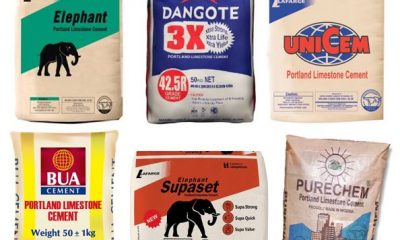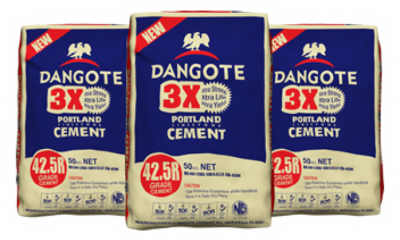Business
Rising Cost Of Cement: We Can’t Afford Houses Anymore – Nigerians

In Nigeria, the soaring cost of cement has become a pressing issue, especially for those on modest incomes hoping to build their own homes. This concern has sparked numerous discussions across the country, where Nigerians have voiced their frustrations over the escalating prices of essential building materials, particularly cement.
During these conversations, one striking observation was made about a cement warehouse that continued to operate as usual, with trucks loading cement despite the steep price hikes. This observation highlighted a stark contrast between those seemingly unaffected by the rising costs and the majority struggling to cope with the financial strain.
However, behind this facade of business as usual lies a harsh reality, as professionals in the construction industry have revealed the adverse impacts of the price surge. Engineers and builders have reported numerous projects being put on hold due to the unaffordable prices of not only cement but also other vital materials like iron rods.
The discussions also shed light on the wider implications of the escalating costs, including concerns about compromised construction standards leading to potential building collapses and exacerbating Nigeria’s already substantial housing deficit.
Organizations such as the Real Estate Developers Association of Nigeria (REDAN) have voiced their apprehensions, warning that without a viable solution to the cement price crisis, the housing shortage in the country will only worsen.
Amidst these discussions, various proposals have been put forward to address the crisis. Some have suggested opening up borders to allow the importation of cheaper cement, with the hope of fostering competition and driving prices down. Others have called upon the government to implement comprehensive mortgage schemes and affordable housing initiatives to alleviate the burden on citizens.
Criticism has also been directed towards monopolistic practices within the industry and government policies that favor large corporations over the needs of ordinary Nigerians. There is a growing demand for fairer policies that prioritize the interests of the general populace and promote equitable access to affordable housing materials.
Send Us A Press Statement Advertise With Us Contact Us
And For More Nigerian News Visit GWG.NG







